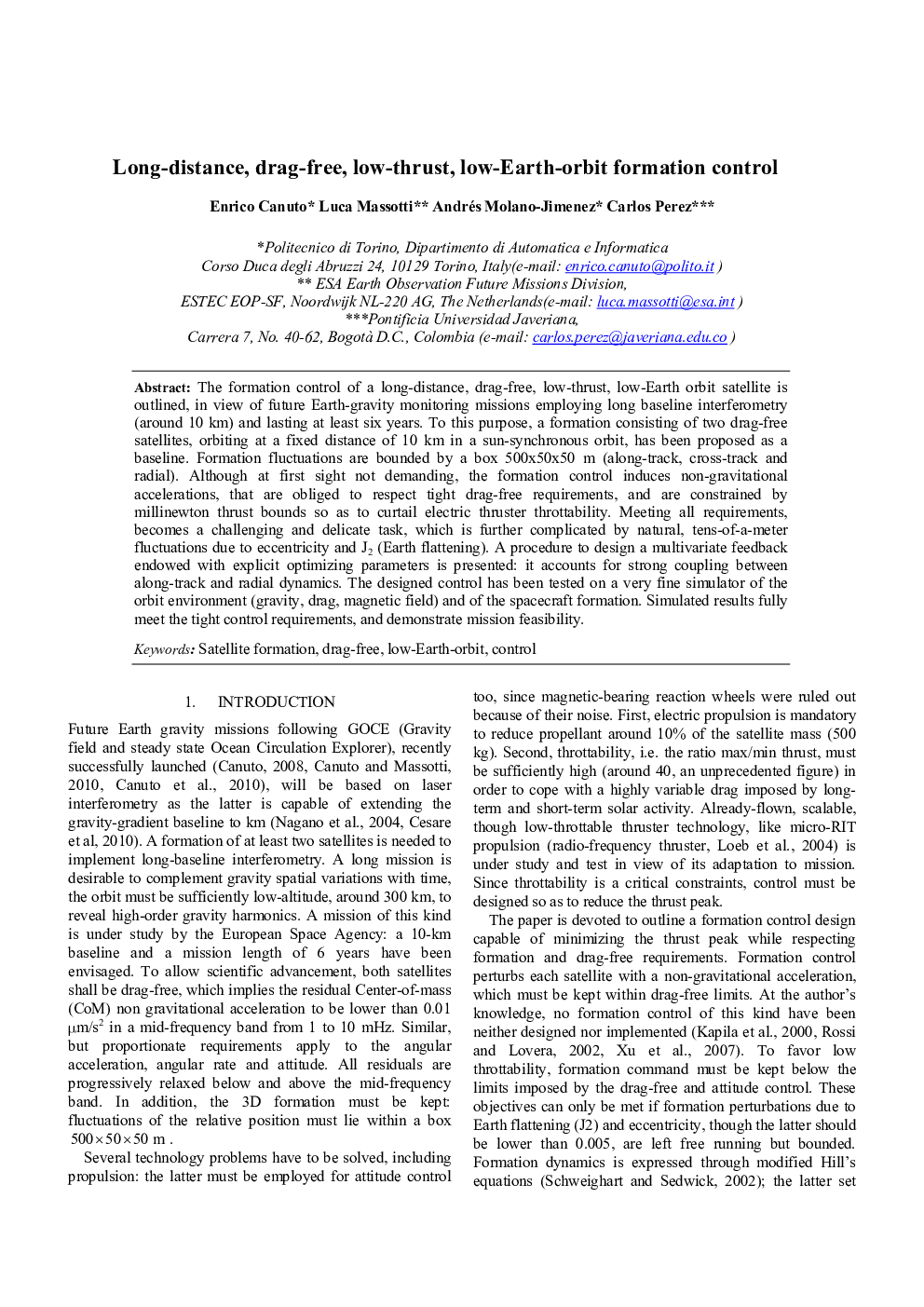| کد مقاله | کد نشریه | سال انتشار | مقاله انگلیسی | نسخه تمام متن |
|---|---|---|---|---|
| 716077 | 892216 | 2010 | 6 صفحه PDF | دانلود رایگان |

The formation control of a long-distance, drag-free, low-thrust, low-Earth orbit satellite is outlined, in view of future Earth-gravity monitoring missions employing long baseline interferometry (around 10 km) and lasting at least six years. To this purpose, a formation consisting of two drag-free satellites, orbiting at a fixed distance of 10 km in a sun-synchronous orbit, has been proposed as a baseline. Formation fluctuations are bounded by a box 500×50×50 m (along-track, cross-track and radial). Although at first sight not demanding, the formation control induces non-gravitational accelerations, that are obliged to respect tight drag-free requirements, and are constrained by millinewton thrust bounds so as to curtail electric thruster throttability. Meeting all requirements, becomes a challenging and delicate task, which is further complicated by natural, tens-of-a-meter fluctuations due to eccentricity and J2 (Earth flattening). A procedure to design a multivariate feedback endowed with explicit optimizing parameters is presented: it accounts for strong coupling between along-track and radial dynamics. The designed control has been tested on a very fine simulator of the orbit environment (gravity, drag, magnetic field) and of the spacecraft formation. Simulated results fully meet the tight control requirements, and demonstrate mission feasibility.
Journal: IFAC Proceedings Volumes - Volume 43, Issue 15, 2010, Pages 297-302